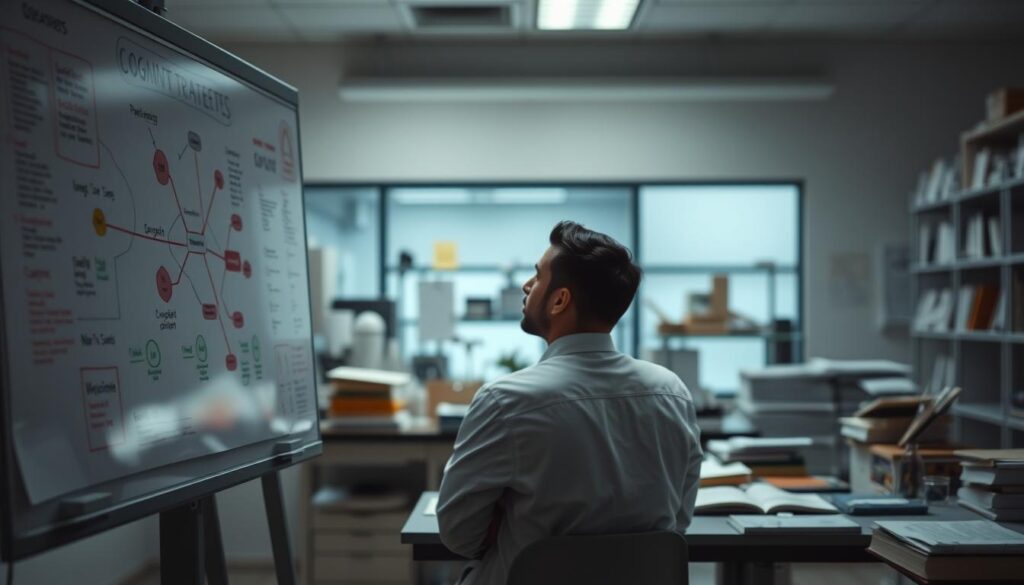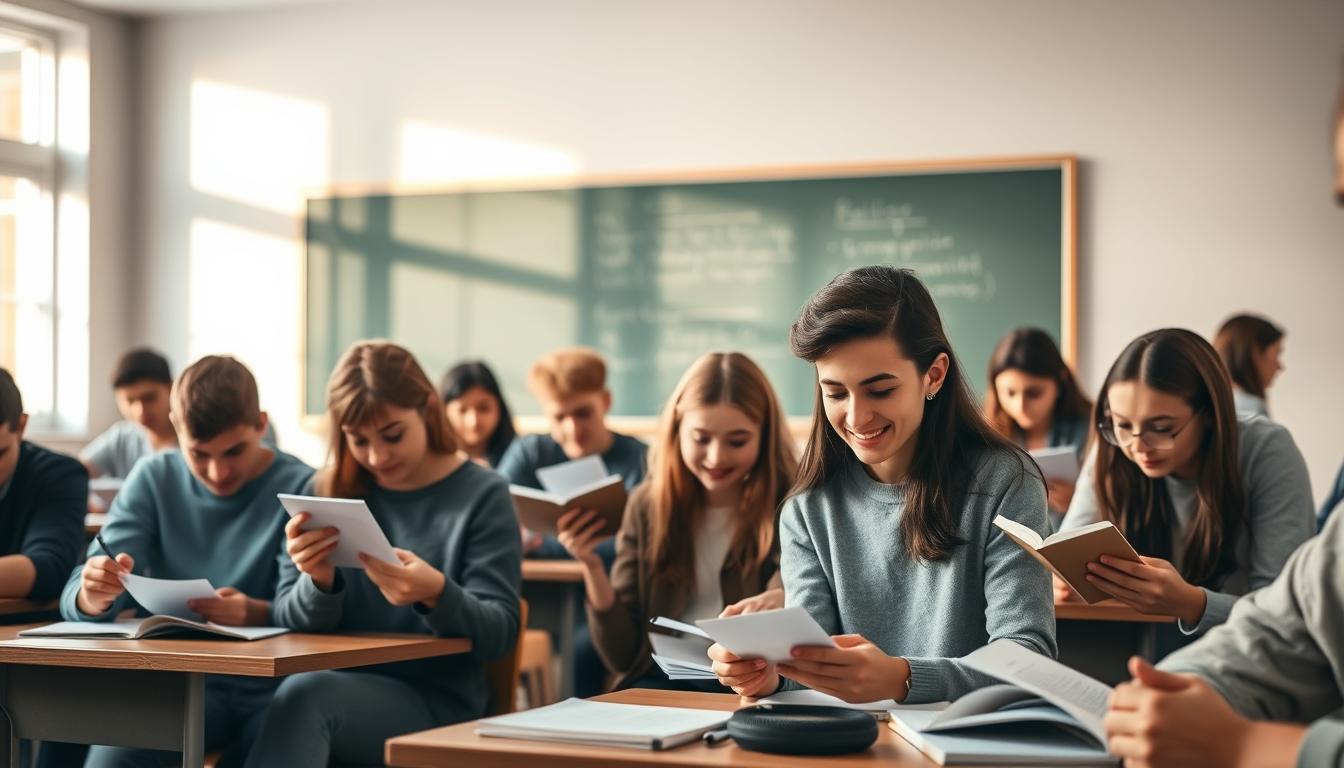In today’s fast-paced world, the ability to absorb and apply new information is crucial for success. Whether you’re a student, a professional, or simply someone looking to expand your knowledge, effective learning techniques can make all the difference.
Consider the story of a person who struggled to pick up a new skill, only to discover that with the right approach, they were able to master it in a fraction of the time. This transformation is possible for anyone who understands how to learn effectively.
This article will explore the strategies and methods that can help you become a more efficient learner, achieving your goals with less effort and more confidence.
Key Takeaways
- Understand the importance of effective learning in today’s fast-paced world.
- Discover strategies to improve your learning efficiency.
- Learn to apply new information and skills with confidence.
- Develop a personalized approach to learning.
- Enhance your ability to absorb and retain new knowledge.
Understanding the Science of Learning
Learning is not just about absorbing information; it’s about understanding how our brains process, retain, and recall that information. To develop effective cognitive strategies, we must first grasp the science behind learning.

How Your Brain Processes Information
Our brains are wired to process information in specific ways. When we encounter new data, it is first stored in our short-term memory, where it is either rehearsed and transferred to long-term memory or forgotten. Understanding this process can help us develop better memory improvement techniques.
As
“The mind is not a vessel to be filled, but a fire to be kindled.” – Plutarch
, this quote highlights the importance of not just memorizing information, but truly understanding and applying it.
The Role of Memory in Learning
Memory plays a crucial role in the learning process. It’s not just about memorizing facts; it’s about forming connections between different pieces of information and being able to recall them when needed. Effective learning strategies often focus on enhancing memory improvement techniques.
The Learning Cycle: From Acquisition to Mastery
The learning cycle involves several stages, from initial acquisition of knowledge to mastery. It includes understanding, practice, and reinforcement. By understanding this cycle, learners can tailor their study techniques to optimize their learning process, fostering critical thinking and problem-solving skills.
To achieve mastery, one must be willing to go through this cycle multiple times, reinforcing previously learned material while advancing to new topics.
Essential Learning How to Learn Strategies
To learn effectively, it’s crucial to adopt strategies that enhance information retention and promote problem-solving skills. By incorporating the right techniques into your study routine, you can significantly improve your ability to absorb and apply new knowledge.
Active Recall: The Power of Self-Testing
Active recall is a powerful learning strategy that involves actively recalling information from memory rather than simply re-reading it. This technique strengthens your ability to retain information and promotes better understanding. Try using flashcards or practice quizzes to test your knowledge.
Spaced Repetition: Timing Your Study Sessions
Spaced repetition involves reviewing material at increasingly longer intervals to help solidify it in your long-term memory. This technique can be particularly effective for learning new vocabulary or complex concepts. By spacing out your study sessions, you can improve information retention and reduce the need for last-minute cramming.
Chunking: Breaking Down Complex Information
Chunking is a strategy that involves breaking down complex information into smaller, more manageable chunks. This can help to reduce cognitive overload and make it easier to understand and retain new information. For example, when learning a new language, you can chunk words into categories or groups to aid memorization.
Interleaving: Mixing Up Your Practice
Interleaving involves mixing up different types of material or problems to deepen your understanding and improve your ability to apply what you’ve learned. This technique can be particularly effective for developing problem-solving skills. By interleaving different types of problems, you can improve your ability to identify the most effective solution strategies.
Developing Critical Thinking Skills
Critical thinking is an essential skill for effective learning, as it enables you to analyze information, evaluate evidence, and form informed judgments. To develop your critical thinking skills, try engaging in activities that challenge your assumptions and encourage you to think creatively, such as debating or solving complex puzzles.
By incorporating these strategies into your study routine, you can take your learning to the next level and develop the study skills needed to achieve your goals. As “The more that you read, the more things you will know. The more that you learn, the more places you’ll go.” – Dr. Seuss.
Practical Study Techniques for Better Retention
The key to successful learning lies in employing strategies that optimize study time and improve memory retention. By adopting effective study techniques, learners can enhance their understanding and recall of complex information.
The Pomodoro Technique: Managing Study Time
The Pomodoro Technique is a time management method that involves working in focused, 25-minute increments, followed by a five-minute break. This technique helps to improve study skills by maintaining concentration and reducing distractions. Regular breaks also help to prevent burnout, making study sessions more productive.
Mind Mapping and Visual Learning
Mind mapping is a visual learning technique that involves creating diagrams to organize and connect information. By using colors, symbols, and images, learners can create a visual representation of complex topics, making it easier to review and recall. This method supports learning habits that emphasize creativity and organization.
Teaching Others: The Feynman Technique
The Feynman Technique involves teaching a concept to someone else as if you’re explaining it for the first time. This technique requires a deep understanding of the subject matter and helps to identify areas where knowledge is lacking. By teaching others, learners can reinforce their own understanding and improve memory retention strategies.
Effective Note-Taking Methods
Effective note-taking is crucial for capturing and retaining information. Techniques such as the Cornell Note-taking System and mind mapping can help learners to organize their notes and review material efficiently. By developing good note-taking habits, learners can improve study skills and enhance their overall learning experience.
By incorporating these practical study techniques into their learning habits, individuals can optimize their study time, improve retention, and achieve their academic goals.
Building Lifelong Learning Habits
Embracing lifelong learning as a habit can significantly enhance one’s adaptability and resilience. To achieve this, it’s essential to focus on creating an environment and mindset that supports continuous learning.
Creating a Productive Learning Environment
A well-organized and distraction-free space is crucial for effective learning. This can be achieved by designating a specific area for studying and ensuring it is equipped with necessary resources. Additionally, incorporating elements like natural light and comfortable seating can enhance the learning experience.
Developing a Growth Mindset
Adopting a growth mindset is pivotal for lifelong learning. This involves embracing challenges and viewing failures as opportunities for growth. By doing so, learners can foster a positive attitude towards acquiring new skills and knowledge.
Problem-Solving Approaches for Complex Topics
When faced with complex topics, employing effective problem-solving strategies is crucial. Techniques such as breaking down problems into smaller components and using analogies can facilitate a deeper understanding of the subject matter.
Tracking Progress and Adjusting Methods
Regularly assessing one’s learning progress and being willing to adjust study methods as needed is vital. This can involve setting clear goals and milestones, and using feedback to refine the learning process.
By implementing these strategies, individuals can cultivate cognitive learning methods that support their long-term educational goals and foster a love for learning that lasts a lifetime.
Conclusion
Developing strong study habits and lifelong learning strategies is crucial for achieving academic success and professional growth. Effective learning enables individuals to unlock their full potential.
Strategies like active recall, spaced repetition, and chunking improve retention and comprehension. A productive learning environment and a growth mindset enhance the learning experience. These elements work together to create a robust framework for learning.
By focusing on lifelong learning habits, individuals can tackle complex topics and stay ahead in their careers. Adopting effective study habits and lifelong learning strategies empowers readers to continue growing and developing their skills, achieving their goals, and realizing their aspirations.
FAQ
What are the most effective learning strategies?
Effective learning strategies include active recall, spaced repetition, chunking, interleaving, and developing critical thinking skills. These techniques can help improve retention, understanding, and application of new information.
How can I improve my memory retention?
To improve memory retention, try using techniques such as spaced repetition, chunking, and active recall. Additionally, getting enough sleep, exercising regularly, and reducing stress can also help improve memory.
What is the Pomodoro Technique and how can it help me study?
The Pomodoro Technique is a time management method that involves working in focused 25-minute increments, followed by a 5-minute break. This technique can help you stay focused, avoid burnout, and retain information more effectively.
How can I develop a growth mindset?
To develop a growth mindset, focus on embracing challenges, persisting in the face of obstacles, and viewing failures as opportunities for growth. You can also cultivate a growth mindset by being open to feedback, learning from others, and practicing self-reflection.
What are some effective note-taking methods?
Effective note-taking methods include the Cornell Notes system, mind mapping, and outlining. These methods can help you organize information, identify key concepts, and review material more efficiently.
How can I stay motivated to learn new things?
To stay motivated to learn, set clear goals, track your progress, and reward yourself for achievements. You can also find a study buddy or join a learning community to stay accountable and inspired.
What is the Feynman Technique and how can it help me learn?
The Feynman Technique is a learning method that involves teaching a concept to someone else as if you’re explaining it for the first time. This technique can help you clarify your understanding, identify knowledge gaps, and retain information more effectively.
How can I create a productive learning environment?
To create a productive learning environment, eliminate distractions, optimize your workspace, and establish a regular study routine. You can also use tools like noise-cancelling headphones, website blockers, or a planner to help you stay focused.
Share this content:
